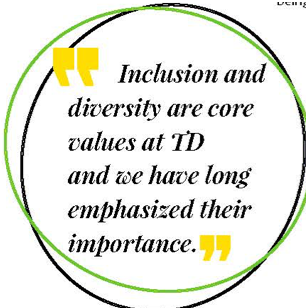Giving Back the Best on the Bench and Beyond!
BY: Raquelle “Rocki” Harris
When you serve in your purpose, you naturally strive to be the best. Judge Kimberly Best exemplifies her surname with excellence as a District Court Judge in Charlotte, North Carolina. For her, it’s an honor to enact justice while advocating for the individuals who come before her. She executes her duties with compassion and veneration.
At the time of her chat with Career Mastered, Best was seeking re-election for her fourth term. Since she has presided in every courtroom possible, her bailiwick includes civil, domestic violence, juvenile delinquency, abuse, neglect and dependency, family, criminal, and involuntary commitment matters.
The Detroit native who proudly refers to herself as a “post office baby from the hood,” had an upbringing that was not as rough as some. But as a Black woman, her birthright gives her firsthand knowledge of the “criminogenic” factors that disparately affect Brown and Black people. Her commitment to aligning her impact with her intentions is evident by how she proactively addresses issues such as the overrepresentation of foster children on psychotropic medications.
“I not only serve the courts, I serve the community. Community service is a huge part of my life,” she shares during a break from campaigning. “I don’t feel as though I’m doing God’s work if I’m not serving the community. I come off the seat and I go into the street and I try to educate folks about the law”
“My judicial philosophy is justice is not one size fits all. Not everyone comes into court situated the same. You can’t say you treat everybody the same because everybody’s not the same.”

The 2017 Career Mastered Leadership in Action Awards Honoree’s shrewd style is borne from her belief in possessing the “common sense, book sense and street sense” she advises youth they will need in order to succeed.
Beyond the bench, Best is the mother to an energetic toddler whom she adopted, in May 2019. “I always said I wanted to adopt. The majority of our kids, in foster care are Black and Brown babies, and little boys, specifically, are the last to get adopted,” she explained. Motherhood hasn’t changed the core of who she is, yet it has tweaked her judicial decision making. “What it has changed, are some of the things I may order.
For example, I had noticed that some parents were not being included in the medical decisions. I make sure that the parents are aware, they have a right to go to the doctor appointments and to assist in making those medical decisions. Same thing with vaccinations, same thing with medication being prescribed.”
Known for her venerable work such as facilitating trainings on implicit bias in order to reduce the disproportionately of youth in foster care, Best has also advocated for awareness of human trafficking and fair treatment of its victims. Efforts from her colleagues to subvert her authority are a constant challenge. Yet, that does not deter her focus on fomenting change by representing what matters in the space she occupies.
“I have always been unapologetically — me. I shoot straight from the hip. I have a strong deep voice, I don’t soften it, intentionally for anyone. As Black folks, we tend to code switch, but 99% of the time, my voice pattern does not change. In a meeting with my colleagues, I say what I have to say, and these are White and Black judges.”
“It’s not my job to make someone else feel comfortable. If I’m talking to a child or an adult [in court] who doesn’t understand what I’m trying to do, I will soften my voice and try to explain to them what’s happening and what needs to happen in the future.”
As she prepares to serve another term — her re-election successfully earned 66% of the votes — Best implores aspiring Black women to avoid code-switching or overcompensating to prove their abilities.
“It’s okay to be authentically yourself and if people can’t accept that, don’t change who you are to fit their mold or their image,” she says. “If you arrive at the bench, anything less than being authentically you will hurt the community. Don’t be afraid to run an election and go straight to the people. They will appreciate your authenticity more than anyone else. That’s what the community wants.”
Best’s ongoing mission to be a change agent and an advocate for social justice, is driven by a mantra she adopted from civil rights icon Dr. Martin Luther King Jr. — “A man can’t ride your back unless it’s bent” she quotes. “So, rise up!”
Always game to show and tell a great story, Raquelle “Rocki” Harris is a writer, editor and media correspondent who values substance while appreciating style. She focuses on Black culture, minority-owned businesses, entertainment and relationships. As the host/producer of her podcast, Rocki’s Reality, she educates while enter



